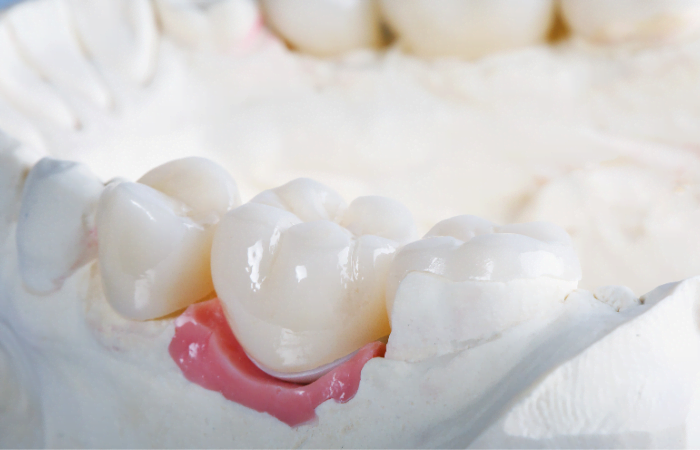
When it comes to restoring damaged or weakened teeth, dental crowns are one of the most effective and versatile solutions available. These tooth-shaped caps are custom-made to fit over your natural teeth, providing protection, strength, and aesthetic appeal. Whether you're dealing with a chipped tooth, a large cavity, or need a crown after a root canal, it's important to weigh the advantages of dental crowns against their disadvantages to make an informed decision. This comprehensive guide dives into everything you should know about dental crowns, their benefits, potential drawbacks, and when they are most commonly used.
A dental crown is a prosthetic cap placed over a damaged or decayed tooth to restore its shape, size, strength, and appearance. Crowns are typically made from materials such as porcelain, ceramic, metal, or a combination of these. They are customized to match the color and contour of your natural teeth, ensuring a seamless smile.
Dentists often recommend dental crowns for the following reasons:
A] Protecting a weakened tooth from breaking.
B] Restoring a tooth that's already cracked or worn down.
C] Covering a dental implant.
D] Improving the appearance of a discolored or misshapen tooth.
The advantages of dental crowns go beyond just aesthetics. Here’s a closer look at why they are a popular choice for restorative and cosmetic dentistry:
i] Protection and Durability: One of the key advantages of dental crowns is their ability to protect a weakened or damaged tooth. Crowns act as a shield, preventing further damage and prolonging the life of the tooth. High-quality crowns, especially those made from metal or porcelain-fused-to-metal, are highly durable and can last for 10-15 years or more with proper care.
ii] Improved Appearance: Dental crowns enhance the appearance of damaged, discolored, or misshapen teeth, restoring your confidence in your smile. Porcelain or ceramic crowns are designed to mimic the natural look of teeth, providing a seamless and aesthetically pleasing result.
iii] Enhanced Functionality : Another major advantage of dental crowns is that they restore the functionality of the tooth. Whether it’s chewing, biting, or speaking, crowns allow you to use your teeth naturally without discomfort.
iv] Versatile Applications : Dental crowns are versatile and can be used in a variety of dental treatments. From repairing a single tooth to being part of a dental bridge or implant, crowns serve multiple purposes in restorative dentistry.
v] Custom-Fit for Comfort: Because dental crowns are tailored to fit perfectly over your tooth, they offer comfort and functionality that feels natural. Once the crown is in place, most people don’t even notice it’s there.
While dental crowns have many benefits, it’s important to consider the disadvantages of dental crowns before making a decision:
A] Cost: One of the significant disadvantages of dental crowns is their cost. Depending on the material and complexity of the procedure, crowns can be expensive. However, their long lifespan and effectiveness often justify the expense.
B] Sensitivity: After the crown is placed, some people experience temporary tooth sensitivity, especially to hot or cold foods. This usually subsides within a few weeks but can be uncomfortable initially.
C] Risk of Damage : Although durable, dental crowns are not indestructible. Porcelain crowns, in particular, are prone to chipping or cracking if you bite down on hard objects.
D] Tooth Preparation: Placing a dental crown involves removing a portion of the natural tooth structure to create space for the crown. This process is irreversible and may weaken the underlying tooth if not done correctly.
E] Potential for Ill-Fitting Crowns: If a crown isn’t fitted properly, it can cause discomfort, bite issues, or even gum irritation. This emphasizes the importance of choosing an experienced dentist for the procedure.
Before opting for dental crowns, here are a few key things to keep in mind:
A] Material Matters: The type of material used for your crown impacts its appearance, durability, and cost. Discuss the best option with your dentist based on your needs.
B] Longevity Requires Care: Proper oral hygiene and regular dental check-ups are essential to maximize the lifespan of your crown. Avoid habits like grinding your teeth or chewing on hard objects.
C] It’s Not Always the Only Option: Depending on your condition, alternatives like fillings, veneers, or inlays may be more suitable. Consult your the best dentist near me to explore all options.
D] Temporary Crowns Are Part of the Process: Before your permanent crown is placed, a temporary crown is usually provided. Be cautious with it, as it’s less durable than the final version.
Dental crowns are a reliable and versatile solution for restoring damaged teeth, improving oral health, and enhancing your smile. While the advantages of dental crowns—such as durability, improved functionality, and aesthetics—make them a popular choice, it’s essential to weigh these against the disadvantages of dental crowns, such as cost and potential sensitivity. By understanding the pros and cons and consulting with an experienced dentist, you can determine whether dental crowns are the right option for your dental needs. With proper care, a dental crown can provide long-lasting protection and help you maintain a healthy, beautiful smile.